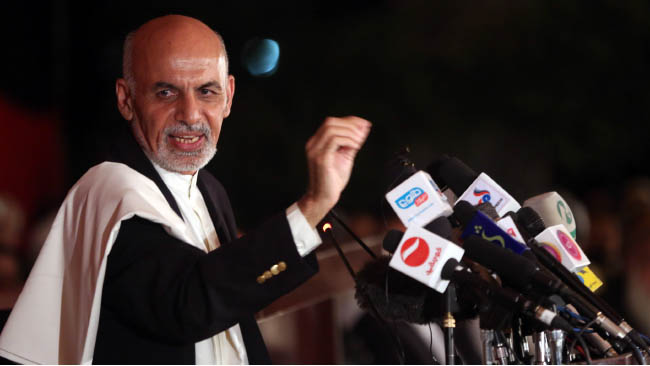In a press conference regarding his recent trip in the Middle East, Afghan President Ashraf Ghani said, “Today my focus is on this major issue that Afghanistan’s location should change from a challenge to a great opportunity. And my recent trip to Kazakhstan, Turkmenistan, and Tajikistan and our future trip to Uzbekistan, are one of the most important steps that, if God willing, will change the Afghanistan’s geography from a prison and a challenge to a great opportunity. Hence, let me speak regarding this issue for few minutes.”
Ill-fatedly, Afghanistan does not lack challenge both in internal and external affairs. The fact is that the internal and external challenges compound each other mutually and will prolong the crisis in the country. Now one cannot claim with certainty that which are the cause and effect. However, it appears that internal challenges have been the main reason behind all misery and instability throughout the history. To think logically, if there were not internal crises, the external problems would come to an end in near future. On the other hand, as long as the internal conflicts persist the external crises will continue unabated. This commentary seeks to view the issue from the same perspective that how we can resolve the internal issues so that we could proceed towards solving the issues imposed on us from outside.
A country’s orientation to international environment for engaging in its transnational arena is considered foreign policy. That is to say, when a country is drawn beyond its border for its national interests, the ground for foreign policy will be paved. The issues of national interests, national security and whatever ensures the transnational benefits are the elements in foreign policy with their unique characteristics.
In recent years, Afghanistan simultaneously cultivated friendly political relations with several countries but a number of them are problematic for the country for having conflicting interests. In addition to the regional powers, other trans-regional powers that are involved in Afghanistan’s issues have a real conflict of interests which will cause Afghanistan not to be able to balance itself in its relations with those countries for its own benefit.
The US, Britain, Iran, Turkey, Russia, Pakistan, China, India, and Saudi Arabia, which played their role in Afghanistan within the last decade, have close tie with the country. However, these countries have conflicting strategic interests in several regional and global issues. In such a case, it will be too difficult for Afghanistan to organize its foreign diplomacy in accordance with wide-ranging conflict of interests so as to ensure its national interests. Currently, Afghanistan’s foreign policy is not based on a clear strategy at regional and international level.
This issue was prominent in previous government, too. Karzai’s administration signed strategic agreement with several countries which still have hostile relationship. The previous government pursued a comprehensive foreign policy but the problem is that such an approach is in need of strong national power so that the country could deal with them.
Most importantly, a multi-lateral relation is possible when Afghanistan sit on the fence, whereas this country signed strategic agreements with important powers. During Karzai’s administration, a large number of regional countries were against signing pact with the US, Europe and India. Now the question is that will Afghanistan be able to have a multi-lateral approach in its foreign policy?
In case of this possibility, the problem lies in lacking professional manpower in diplomatic apparatus. This issue is in need of great investment in the future.
The solution to persistent challenges is that the country should be stabilized politically from within. This political stability is in need of comprehensive internal consensus. It is self-explanatory that in case of lacking such an internal consensus, stability will be elusive which will result in complicated political setup preventing the country from having an effective foreign policy at regional and international level.
Therefore, it seems that Afghanistan is not a major political actor in the region or in the world, but all political behaviors and decisions are based on a kind of reaction to other action-makers.
In fact, Afghanistan’s recent foreign policy has been as a reaction to the objectives of the region and was not able to direct the foreign policy of these countries towards its own interests. Lack of a clear definition for national interests is more likely to be the main reason behind this issue. So, how it will be possible to reap a benefit from our foreign policy in relation with countries when there is no certain and comprehensive definition for national interests and no national consensus in this respect!
To sum up, foreign policy will put an end to the obstacles and challenges when it is strongly based on national authority and consensus. National trust and consensus will be gained through national participation in political structure.
Home » Opinion » Afghanistan – From Stable Internal Policy to Foreign Policy
Afghanistan – From Stable Internal Policy to Foreign Policy
| Syed Asif Husaini

